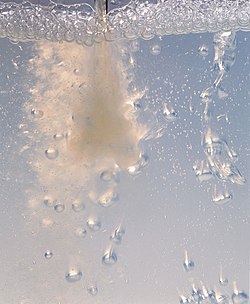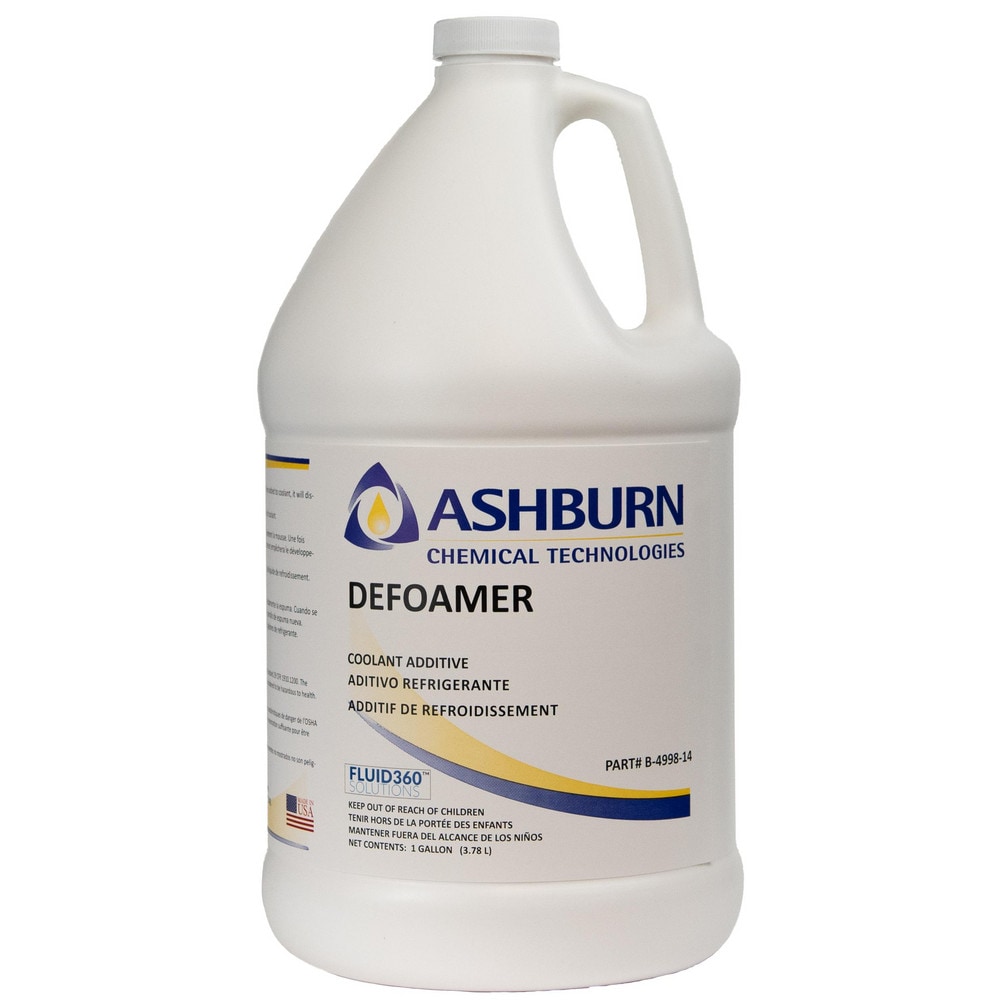Discover the Leading Factors You Need a Chemical Defoamer for Effective Foam Control
In numerous commercial applications, efficient foam control is paramount for preserving functional performance and product high quality. Chemical defoamers act as essential agents that minimize foam development, thereby improving procedures in fields such as food manufacturing, pharmaceuticals, and wastewater therapy. Their capacity to reduce surface tension not just assists in quicker foam collapse yet also results in considerable expense financial savings and boosted resource administration. As we check out the diverse benefits of chemical defoamers, it becomes apparent that their duty extends beyond mere foam reduction, impacting overall productivity in manner ins which may not be promptly evident.
Boosted Functional Effectiveness
The existence of foam can prevent manufacturing by obstructing tools, decreasing ability, and complicating procedure control. By decreasing surface area tension, they promote the fast collapse of foam, permitting for smoother procedure and reducing downtime.
In sectors such as food and beverage, drugs, and wastewater treatment, the application of defoamers improves procedure stability and product quality. In fermentation procedures, managing foam generation is important for making best use of yield and performance. Additionally, the usage of defoamers can result in more efficient blending and aeration, leading to boosted reaction times and total efficiency.
Furthermore, when foam is properly regulated, it reduces the danger of overflow and contamination, making sure conformity with safety and security and high quality standards. Ultimately, the assimilation of chemical defoamers into commercial procedures cultivates a more efficient operations, enhancing outcome while keeping top notch criteria.
Price Savings and Resource Administration

In numerous applications, too much foam can trigger overuse of chemicals, leading to unnecessary expenditures. By regulating foam degrees, services can maximize their chemical input, thereby lowering operational expenses.
Furthermore, decreased foam in handling systems can improve the overall throughput, allowing facilities to enhance manufacturing capacity without sustaining extra prices - Chemical Defoamer. This efficient source monitoring converts right into significant financial advantages, allowing businesses to allocate funds towards development or development. In summary, the assimilation of chemical defoamers right into industrial processes cultivates a more resource-efficient and economical environment, inevitably supporting business growth and sustainability
Improved Product Quality

The use of chemical defoamers plays a vital duty in boosting product high quality throughout various markets. Too much foam can lead to inconsistent item solutions, affecting the final characteristics of products such as paints, finishings, food items, and pharmaceuticals. By minimizing foam formation, chemical defoamers promote smoother production processes, guaranteeing that here are the findings solutions continue to be consistent and satisfy specified high quality standards.
In the food and beverage industry, for example, the visibility of foam can impact the quality and preference of products, inevitably influencing customer complete satisfaction. Chemical defoamers assist maintain the wanted appearance and look, consequently improving the overall quality of the last product. Likewise, in the manufacturing of paints and layers, foam can lead to flaws such as pinholes and poor bond, weakening the item's efficiency.
Additionally, the usage of defoamers can boost the efficiency of processes like fermentation and emulsification, which are vital for accomplishing preferred product characteristics. By streamlining manufacturing and making sure consistent high quality, chemical defoamers not just improve the end item however likewise add to a favorable brand name online reputation. Hence, spending in other effective foam control solutions is important for any type of service intending to supply top notch products continually.
Equipment Defense and Durability
Lessening foam production is necessary for safeguarding devices and guaranteeing its durability in numerous commercial applications. Too much foam can cause a variety of operational concerns, consisting of equipment damage, raised maintenance expenses, and unintended downtime. When foam accumulates, it can cause overflow, causing spills that jeopardize the integrity of machinery and bordering locations.
Moreover, foam can obstruct sensing units and pumps, which can prevent efficiency and efficiency. In extreme situations, it can cause the breakdown of components, requiring pricey repair services or replacements. By using a chemical defoamer, companies can successfully minimize foam development, thus safeguarding their equipment from the harmful impacts of foam-related issues.
In enhancement to avoiding damage, effective foam control can dramatically enhance the operational life expectancy of machinery. Investing in a high quality chemical defoamer is a proactive technique for securing tools and promoting longevity in commercial settings.
Flexibility Throughout Industries
Chemical defoamers play a vital duty in various industries, properly attending to foam-related challenges across diverse applications. Their convenience is obvious in industries such as food and beverage, drugs, and wastewater treatment, where foam can decrease and hinder processes efficiency. In the food market, defoamers ensure smooth production by stopping foam formation throughout mixing, fermentation, and bottling, thus maintaining product high quality and consistency.

Additionally, in wastewater treatment centers, chemical defoamers are employed to regulate foam during the oygenation procedure, promoting ideal microbial activity and boosting the overall therapy effectiveness. Their ability to function successfully in high-temperature and high-shear settings further underscores their versatility.
Final Thought
In verdict, the usage of chemical defoamers is vital for effective foam control throughout numerous sectors. The versatility of defoamers enables for widespread application in food production, drugs, and wastewater treatment, eventually adding to view it sustainable development and the upkeep of high functional requirements (Chemical Defoamer).
Chemical defoamers offer as essential agents that alleviate foam formation, thus improving processes in sectors such as food manufacturing, drugs, and wastewater treatment. As we discover the multifaceted benefits of chemical defoamers, it becomes apparent that their role expands beyond simple foam reduction, impacting total productivity in means that may not be immediately noticeable.
By reducing foam development, chemical defoamers facilitate smoother manufacturing processes, ensuring that solutions stay consistent and satisfy specified quality standards.
By utilizing a chemical defoamer, business can effectively mitigate foam development, therefore safeguarding their devices from the detrimental results of foam-related problems.
In final thought, the utilization of chemical defoamers is essential for efficient foam control throughout numerous sectors.